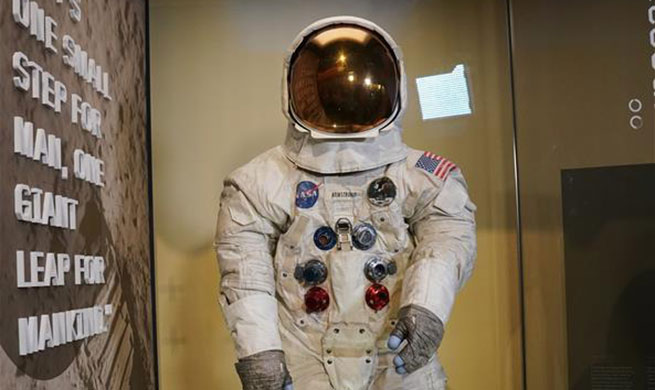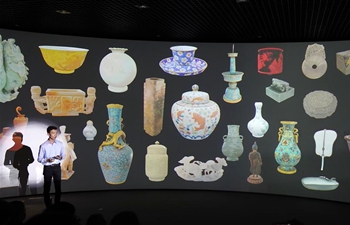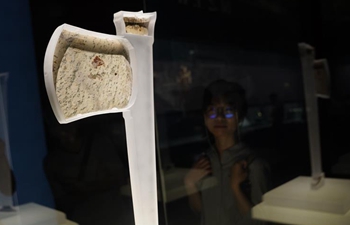SYDNEY, July 17 (Xinhua) -- Researchers at Australia's RMIT University in Melbourne have developed a microchip which mimics the biological function of the brain to create and store memories -- presenting possibilities for the future of advanced artificial intelligence.
The study, released on Wednesday, reveals how the microchip uses light waves to alter electrical resistance from positive to negative -- equivalent to the binding and breaking of neural connections, which is how our brains create and lose memories.
Research team leader Sumeet Walia told Xinhua that he was inspired by an emerging area of study known as optogenetics, which uses light waves to control neurons in living brains.
"By adopting the methodologies that people use in optogenetics, what we have done is developed an artificial synapse which is sensitive to light," Walia said.
"And it is sensitive to different wavelengths of light so by shining different colors of light, we can either turn on the synapse or we can turn off the synapse."
Walia explained that our brains create memories by connecting neurons and when that connection is broken is when we forget the memories.
"So when we shine the particular wavelength of light on these artificial neurons they mimic the binding of neurons and when we shine the different wavelengths of light on these artificial neurons they mimic the behaviour of losing that bond."
Walia says that mimicking this basic function of neurons presents possibilities for the future of artificial intelligence, which relies on the ability to create and store memories in order to learn.
"This technology ... brings us an important step closer to the realization of a bionic brain -- a brain-on-a-chip that can learn from its environment just like humans do," he said.
Walia also hopes that the research may assist research into neurological disorders such as Alzheimer's disease and dementia.
"If we understand the mechanism ... then we can think of how to cure this disorder," Walia said.












